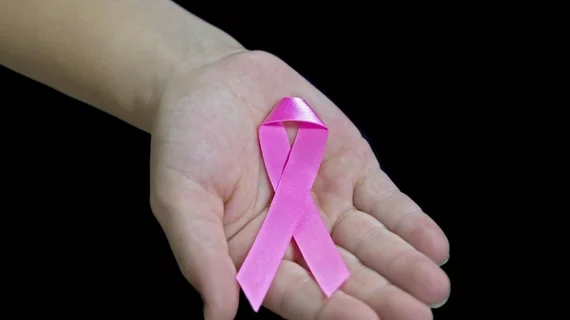Genetic testing could cut first year breast cancer costs by $50M
Using a specific genetic test in women diagnosed with early-stage breast cancer could reduce first year costs of cancer care in the U.S., according to an April 24 study published in the Journal of the National Cancer Institute.
Jeanne S. Mandelblatt, MD, MPH, at Georgetown Lombardi Comprehensive Cancer Center in Washington D.C., and colleagues looked at gene testing and chemotherapy usage from National Cancer Institute and Medicare databases before and after the TAILORx (Trial Assigning Individualized Options for Treatment ) trial results were made public in 2018.
Mandelblatt and colleagues estimated that, before 2018, the mean initial costs of healthcare nationwide for newly diagnosed breast cancer cases included $2.701 billion for chemotherapy while Oncotype DX testing was estimated at $115 million during that time period. The estimated cost of a single DX genetic text was $3,400, based on Medicare reimbursement rates.
After TAILORx revealed chemo showed no benefit in women with lower risk for recurrence, the researchers projected women with low to intermediate risk would skip chemotherapy, reducing treatment costs by eight percent. Then, assuming 100% of women would get genetic testing, the total cost of testing would jump to $231 million.
Finally, by comparing the pre-2018 and post-2018 initial 12-month total costs of care, the authors projected treatment and testing costs would drop from $2.816 to $2.766 billion, a nearly $50 million decrease.
"Individual women's decisions should not be about dollars and cents, but what is right for them based on consideration of the best evidence and personal preferences," Mandelblatt said in a news release.
In February, the American Society of Breast Surgeons released new guidelines recommending all people diagnosed with breast cancer undergo genetic testing. While the society did not mention potential cost savings, it did stress that genetic testing could help patients take action to reduce their risk for developing breast cancer.
"This study only answers the question about whether, in the first 12 months after diagnosis, costs of gene testing are likely to be offset by savings in avoided costs of chemotherapy—and the answer is yes. We did not estimate how the trial results could diffuse into medical practice, since those data will not be available for several years," Mandelblatt added. "The gene tests are not perfect predictors of who will ultimately have a recurrence of breast cancer, so it will be important to model the long-term outcomes and costs from diagnosis to death."

